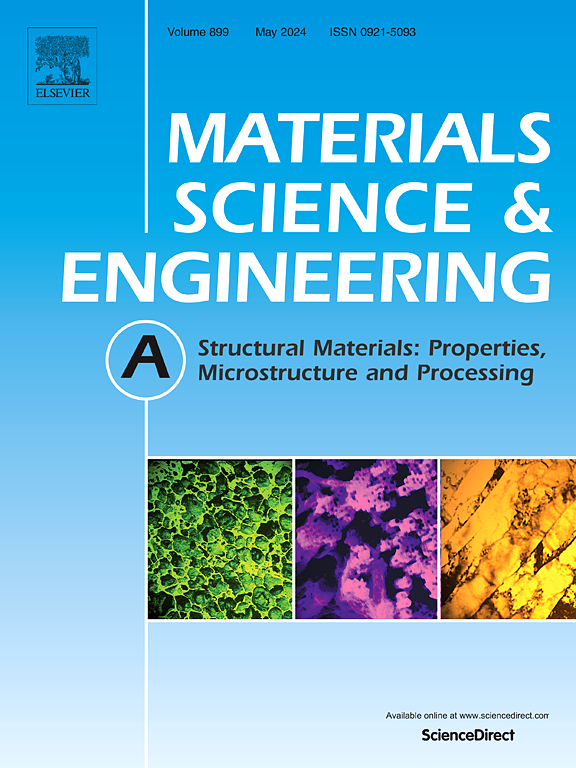包轧法制备纳米晶NiTiTa合金板材的超弹性和弹热效应
IF 7
2区 材料科学
Q1 MATERIALS SCIENCE, MULTIDISCIPLINARY
引用次数: 0
摘要
本文采用包轧和变形后退火的方法制备了具有混合晶粒结构(以纳米晶为主)的Ni49.6Ti45.4Ta5合金板材。该合金在363 K以上表现出明显的超弹性(可恢复应变,εR≥5.38%)和弹热效应(绝热温度变化,ΔTad≥11.1 K)。预应变为6%时,363 K时εR和ΔTad分别为5.87%和11.3 K,在循环拉伸变形过程中基本保持不变。高温下大而稳定的超弹性和弹热效应可归因于纳米晶结构(纳米单晶马氏体和细晶奥氏体)的强化作用。这一特性使得所研究的Ni49.6Ti45.4Ta5合金比传统的NiTi二元合金更适合高温应用。本文章由计算机程序翻译,如有差异,请以英文原文为准。
Superelasticity and elastocaloric effect of NiTiTa alloy sheet with a nanograined structure fabricated by pack rolling
In this work, Ni49.6Ti45.4Ta5 alloy sheets with a mixed grain structure (mostly nanocrystals) were prepared by pack rolling and post-deformation annealing. This alloy exhibits considerable superelastic property (recoverable strain, εR ≥ 5.38 %) and elastocaloric effect (adiabatic temperature change, ΔTad ≥ 11.1 K) above 363 K. Under a pre-strain of 6 %, εR and ΔTad at 363 K are 5.87 % and 11.3 K respectively, which keep almost unchangeable during cyclic tensile deformation. Large and stable superelasticity and elastocaloric effect at high temperature can be attributed to the strengthening effect of nanocrystalline structure (nano-sized single-variant martensite and finer austenite). This characteristic makes the studied Ni49.6Ti45.4Ta5 alloy more suitable for high-temperature applications as compared to the conventional NiTi binary alloy.
求助全文
通过发布文献求助,成功后即可免费获取论文全文。
去求助
来源期刊

Materials Science and Engineering: A
工程技术-材料科学:综合
CiteScore
11.50
自引率
15.60%
发文量
1811
审稿时长
31 days
期刊介绍:
Materials Science and Engineering A provides an international medium for the publication of theoretical and experimental studies related to the load-bearing capacity of materials as influenced by their basic properties, processing history, microstructure and operating environment. Appropriate submissions to Materials Science and Engineering A should include scientific and/or engineering factors which affect the microstructure - strength relationships of materials and report the changes to mechanical behavior.
 求助内容:
求助内容: 应助结果提醒方式:
应助结果提醒方式:


